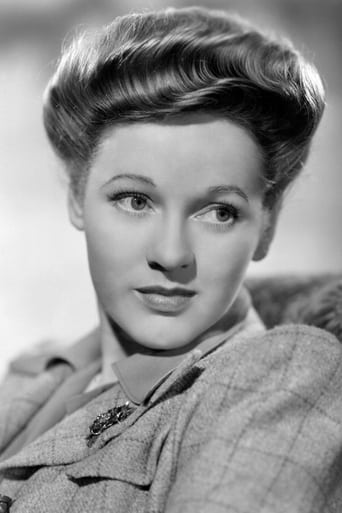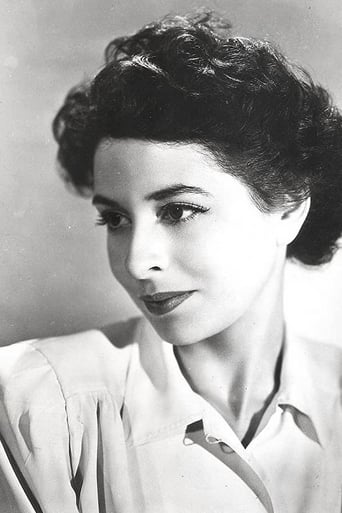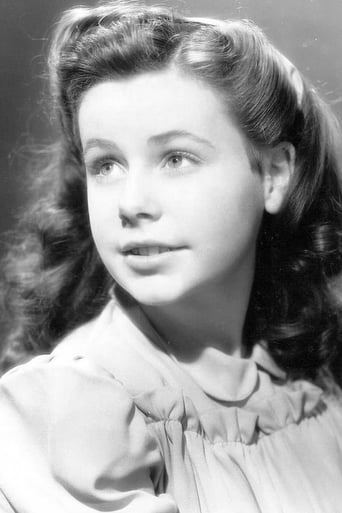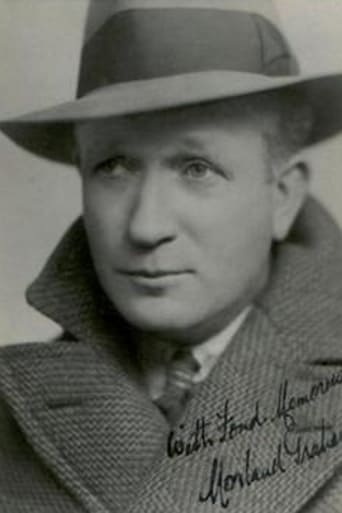Inclubabu
Plot so thin, it passes unnoticed.
Solidrariol
Am I Missing Something?
Beystiman
It's fun, it's light, [but] it has a hard time when its tries to get heavy.
Kailansorac
Clever, believable, and super fun to watch. It totally has replay value.
HotToastyRag
The Upturned Glass is really good, up until the ending, so if you like suspenseful, tense thrillers and don't mind lukewarm endings, rent it during your next movie night with the girls. It's not the best movie to rent with your sweetie pie, since you'll spend the entire time sighing over James Mason!James stars as a brain surgeon and professor. He tells a story to his students about how, in theory, someone can get away with murder. Of course, the story is much more than a hypothetical, and soon the audience is treated to the wonderful world of flashbacks. In the past, James Mason operated on a young girl and fell in love with her mother, Rosamund John. They're both married, and after a tearful goodbye, they agree not to see each other anymore. Then, the unthinkable happens. . .James's at-the-time wife Pamela Mason costars as Rosamund's sister-in-law, and it's always fun to see the Masons acting together. Pamela plays a great "bad girl," doesn't she? If you like James Mason, this is a great movie to watch, since he's the hero with a bit of a villainous streak hiding underneath. Plus, since so often his handsomeness was ignored by Hollywood, it's nice to see him as a romantic lead!
manderstoke
One of the earlier reviewers suggested that the film takes "the easy way out." I partially agree, but think that the real reason for the disappointing finale was the censors. They, in their moral righteousness, did their very best to ruin any number of UK and American films. In this case, the ending makes little sense. Otherwise, a very satisfying early addition to the film noir genre. The photography and pacing are perfect and carry the bleak mood. A minor quibble is that the notion of the lovers breaking off wasn't totally credible, but then, perhaps it was a different moral universe in the 1940s. Mason, as always, is excellent to the point that the viewer cannot take his eyes off of him (not that one would want to). Pamela is a hateful character, as from all reports, she was in real life.
appealing_talent
A very fine neurosurgeon, impeccably portrayed by James Mason, who teaches criminology as a sideline, recounts a certain case study to a class during a lecture. The case deals with a man he deems to be sane, but who commits murder to avenge a murder. Mason, who has honed his great gift to heal, as a way of replacing the human connection his personal life lacks, has become detached and somewhat obsessive in his perspectives, as a result. Although he doesn't reveal it, to the undergraduates, we discover through the course of his story that he is the protagonist in the example he's presenting. He renders the murder as having been smoothly and successfully carried out, however we learn immediately thereafter that it actually has not yet been accomplished.Mason's skillfully controlled persona, as the neurosurgeon, is letter perfect and one gets the feeling that his assumptions regarding the way in which a guilt ridden former lady love died are most probably true. Although an inquest rules it as an accidental fall, gossipy detractors place the blame on the woman's, self-centered, opportunistic sister-in-law, who has much to gain financially by the woman's death. Mason's doctor character feels compelled, out of vanity, to justify his revenge to the unwitting students and then sets out to put the final segment of the plot into action.Murphy's law and irony prevail causing the retaliation to not come off nearly as seamlessly as planned. Moreover, while looking for a place to dispose of his murder victim's body Mason meets up with another more sardonic doctor, whom he's forced to give a ride to and is subsequently obliged to assist. Mason operates on and saves a young patient's life, only to be castigated and labeled, as mad, by the other doctor for his motives. The other doctor, who at one point is asked to fetch a medical supply from Mason's car, discovers the camouflaged body of his victim in the back seat but, without turning Mason in, rather asserts a moral dilemma, which figuratively then literally pushes Mason over the edge.The title of the film comes into play in the form of an analogy the other doctor makes to a glass precariously perched to fall, crack and break, comparing it to Mason's unsound mind. Mason gets the point and abruptly does a swan dive over an abyss, into the sea. We are left to ponder whether it was a consequence of being faced with his monumental conceit, or hypocritical notion of altruism, that ultimately causes his undoing.The noir aspects of its film techniques aside, this is a brilliant character study and Mason's superb achievement, alone, in creating a complex, sympathetic murderer makes the movie well worth viewing.
mark.waltz
As a popular British criminologist, James Mason tells a class full of intrigued students about a supposedly sane man who plotted murder over revenge. Over the first hour, the writers present a very intriguing case involving a doctor who saves a young girl on the operating table then falls in love with her mother. He plots revenge when the young woman dies mysteriously after falling out of a second story window in her house. All is fine for the first two thirds of the movie until the true crime comes to light and a plethora of incidents occur that take the screenplay all over the place. While the movie is beautifully filmed and is interesting throughout, the last 15 minutes of the movie take a lot of dramatic license in wrapping the story up. Mason is mesmerizing as always, but the title really has nothing to do with the plot. For film noir fans, there are many elements there of that genre, including some dark and moody photography and a femme fatal that will go down as one of the most unlikable in film history.






